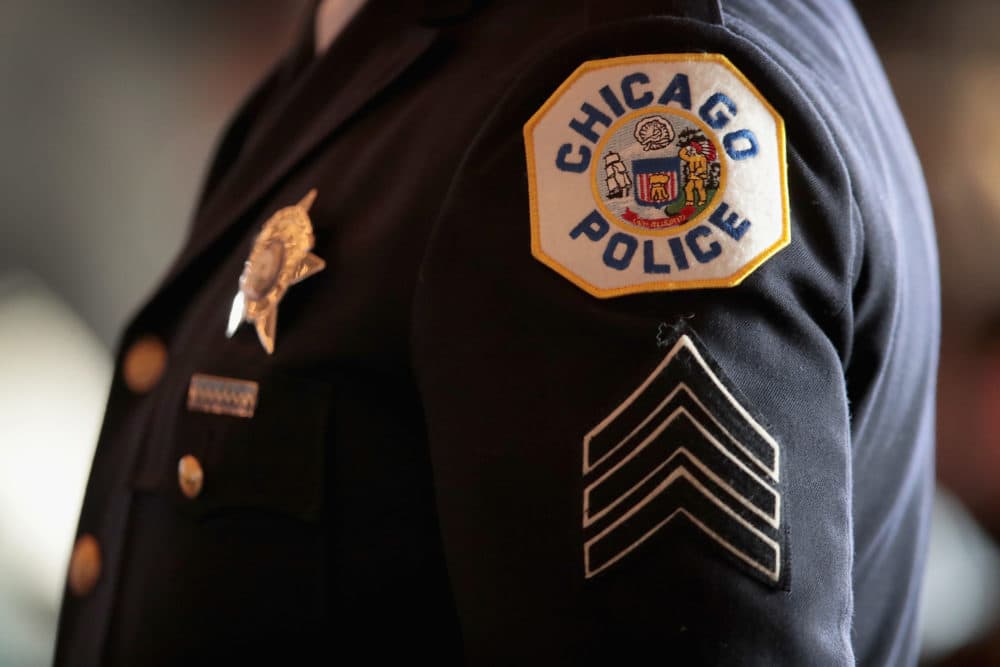Advertisement
Former DOJ Investigator: Widespread 'Blue Code Of Silence' Within Chicago Police Department
Resume
The protest chant "16 shots and a cover-up" has become a mantra for activists in Chicago since the 2014 police killing of 17-year-old Laquan McDonald.
But on Thursday, three officers charged with covering up for their colleague Jason Van Dyke — who was convicted last year of murdering McDonald — were found not guilty of conspiracy, obstruction of justice and official misconduct.
Christy Lopez is intimately familiar with the case. She worked in the Civil Rights Division at the U.S. Department of Justice until 2017, where she helped lead an investigation into the Chicago Police Department after McDonald was killed. She says her team identified a widespread "blue code of silence" over the course of its investigation.
"Systemic police misconduct is never about the acts of individual officers," Lopez (@Christy_E_Lopez), now a visiting professor at the Georgetown University Law Center, tells Here & Now's Lisa Mullins. "It is about the systems that tolerate and incentivize that conduct."
She says the case decided this week could be even more important than the guilty verdict in Van Dyke's murder trial.
"We found that the city does not take sufficient steps to prevent officers from deliberately concealing misconduct," she says. "And so this case was important because it was going after that system. That's how you're really going to get at this problem."
Interview Highlights
On the parameters of the police conspiracy case
"This is the conspiracy case. So what the judge is looking at in this case is after the fact, not at the moment, but in the weeks and months after this event was this investigated appropriately or did they try to cover it up? And that's not a matter of speculation about what was in anybody's minds. What these officers described in these reports was Laquan McDonald lunging at the officers, and that is just not what happened. You can see that in the video. You can see that in the testimony. You heard that in testimony from other officers that the judge discredited."
On what the investigation into the Chicago Police Department found
"Well, we had many officers in the department tell us that there was a code of silence. ... We found that the department not only tolerates but incentivizes a code of silence. They make it difficult for [internal affairs] investigators to investigate whether officers concealed misconduct. They don't take steps to make sure that things like body cams and car cameras are working."
On the concerns in the memo written by former Attorney General Jeff Sessions
"The memo is part and parcel of Jeff Sessions hostility towards correcting police misconduct through proactive preventative measures. I'm not worried about the Chicago consent decree because that is now being litigated by the state. I'm worried about the consent decrees and other cities where the Department of Justice is a party because in those instances, those attorneys trying to enforce those agreements I think their hands are going to be tied, unless the federal judges in those cases really step up and make sure that those agreements are allowed to be fully implemented."
Savannah Maher produced this interview and edited it for broadcast with Todd Mundt. Samantha Raphelson adapted it for the web.
This segment aired on January 18, 2019.
